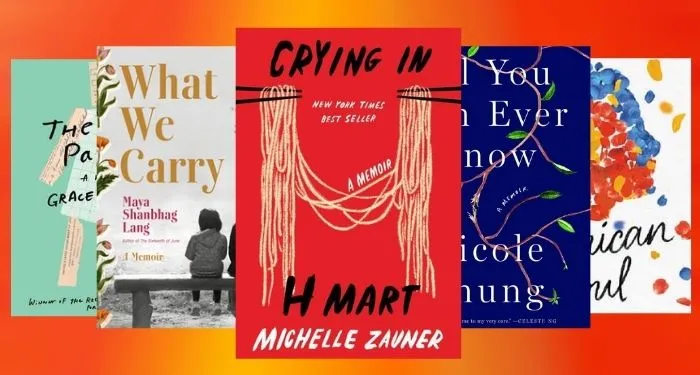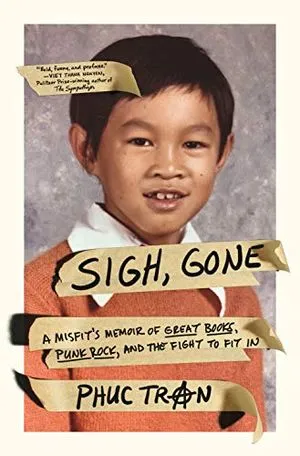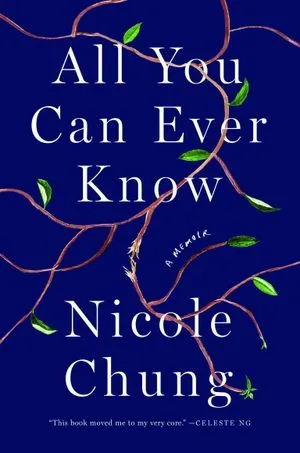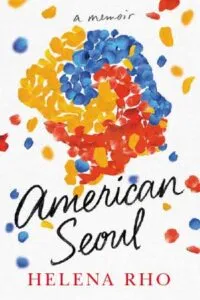
The Best Memoirs to Read for Asian American and Pacific Islander Heritage Month
Asian American and Pacific Islander Heritage Month is celebrated in the United States from May 1 to May 31. While it’s important to read AAPI stories all year round, consider this month an additional opportunity to celebrate the stories of Asian American and Pacific Islander writers.
Of course, “Asian American and Pacific Islander” is a term that encompasses a widely varied group of people from different cultures and backgrounds and with different life experiences. And that means the stories these authors are telling are just as varied. With that in mind, this could not possibly be an exhaustive list of every AAPI memoir. And of course it doesn’t even begin to encompass the entirety of the Asian American and Pacific Islander experience. No one collection of books could. But the following ten books are some of the noteworthy titles that have come out in recent years that are absolutely worth the read.
So as you consider how to celebrate Asian American and Pacific Islander Heritage Month, add these books to the top of your list. These stories are emotional, heartwarming, and sometimes even funny. They’re the stories of family, identity, finding one’s place in the world, finding community, and much more.

Speak, Okinawa by Elizabeth Miki Brina
Speak, Okinawa is Elizabeth Miki Brina’s deeply personal exploration into the complicated relationship between her parents — an Okinawan war bride and a Vietnam veteran — and the author’s own feelings about her multi-cultural background. This powerful memoir explores many thought-provoking themes surrounding identity, family legacies, forgiveness, culture and history, and what it means to be an American.

Crying in H Mart by Michelle Zauner
Unless you’ve been living under a rock, you’ve probably heard all about Michelle Zauner of Japanese Breakfast fame and her bestselling memoir Crying in H Mart. But if you’ve somehow missed it up until this point, here’s your sign. Read it now. What started off as a viral New Yorker essay is now a full-on memoir about the author’s experiences growing up Korean American, dealing with the loss of her mother, and finding her identity. You’ll laugh. You’ll cry. You’ll want to hug all the people in your life who matter.

Sigh, Gone by Phuc Tran
Phuc Tran’s Sigh, Gone is an irreverent and heartfelt coming-of-age memoir that’s perfect for anyone who’s ever felt like an outsider (so basically this book is perfect for everyone). Phuc Tran immigrated to America with his family in 1975 during the fall of Saigon. But transitioning from life in Saigon to life in Carlisle, Pennsylvania, wasn’t easy, and the Trans found it difficult to assimilate to American life. In this book, Phuc deals with his feelings of isolation and the challenges of immigration by connecting to literature and punk rock music.

Of Color by Jaswinder Bolina
This debut essay collection isn’t a traditional memoir. Rather, Of Color by Jaswinder Bolina is a collection of autobiographical essays that explore the author’s own experiences with racism in America. Bolina uses his own life stories as a jumping off point to look at how race, as he puts it, “becomes metaphysical.” This memoir-in-essays examines issues of immigration, assimilation, art, politics, and much more.

The Magical Language of Others by E.J. Koh
The previous memoir was a memoir told through essays, and EJ Koh’s memoir is told through letters, from mother to daughter. After living in America for over a decade, Eun Ji Koh’s parents returned to South Korea for work, leaving Eun Ji and her brother behind in California. Over the years, Eun Ji’s mother wrote her letters in Korean, asking for her daughter’s forgiveness for abandoning her. Now, years later, Eun Ji translates the letters, and in doing so she examines the story of her mother and her grandmother, and how their stories connect to her own.

The Best We Could Do by Thi Bui
The Best We Could Do is the first of two graphic memoirs on this list. This debut graphic novel is the story of Thi Bui’s family’s journey from their war-torn home in Vietnam to their new lives in America. Through this emotional story and deeply moving images, Thi Bui explores the difficulties of being a parent and of being a child, the strength of family, identity, and what it means to find a home.

What We Carry by Maya Shanbhag Lang
Maya Shanbhag Lang’s What We Carry is a touching memoir about a daughter caring for and rediscovering her mother as an adult. Growing up, Maya idolized her mother, a brilliant physician who immigrated to the United States from India. But as Maya got older, her mother became less of a support system. Later, Maya learns her mother is living with Alzheimer’s. When Maya becomes responsible for her mother’s care, she soon realizes that the mother is not the person she thought she knew. And all the stories she had grown up believing about her mother might not even be true.

The Body Papers by Grace Talusan
The Body Papers is Grace Talusan’s award-winning memoir that explores the highs and lows of the author’s life with brutal honesty. With emotional openness, Talusan writes about her experiences immigrating to America from the Philippines as a child, being confronted with racism, the sexual abuse she experienced at the hands of her grandfather, and battling cancer as an adult. Talusan’s story is highly personal, but it’s also the story of family legacy and history and how that informs our identity.

Good Talk by Mira Jacob
Mira Jacob’s Good Talk is the second graphic memoir on this list, and it’s just as touching and thought-provoking as the first. Inspired by her popular BuzzFeed piece “37 Difficult Questions From My Mixed-Raced Son,” Mira Jacob’s emotional and often humorous graphic memoir is written as responses to her 6-year-old Zakir’s difficult questions. Jacob’s book explores complicated issues surrounding race, sex, love, family, and more.

All You Can Ever Know by Nicole Chung
As many of these memoirs have stressed, family legacies and culture are a very important part of identity. But Nicole Chung’s memoir All You Can Ever Know is a story about what happens when a person is separated from those things. Nicole was adopted by a white family and raised in a small Oregon town. Nicole grew up believing the myth that her biological parents made the ultimate sacrifice by giving her up so that she could live a better life. But as she grew up and faced issues that her white parents could never fully understand, she wondered what the truth was about her biological family. Was the story she’d been told the whole truth?
Wanting more Asian American and Pacific Islander stories to help you celebrate this month? Here are 12 middle grade Asian historical fiction books by authors of color. Here are 18 great YA books by AAPI authors. And last but not least, here are 25 AAPI authors everyone should know. Happy reading!
